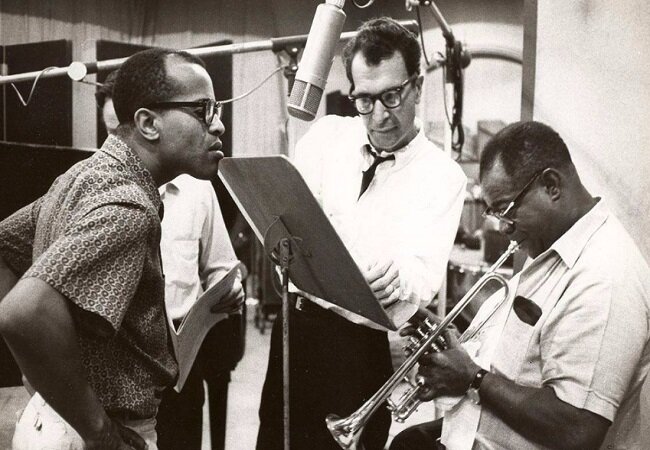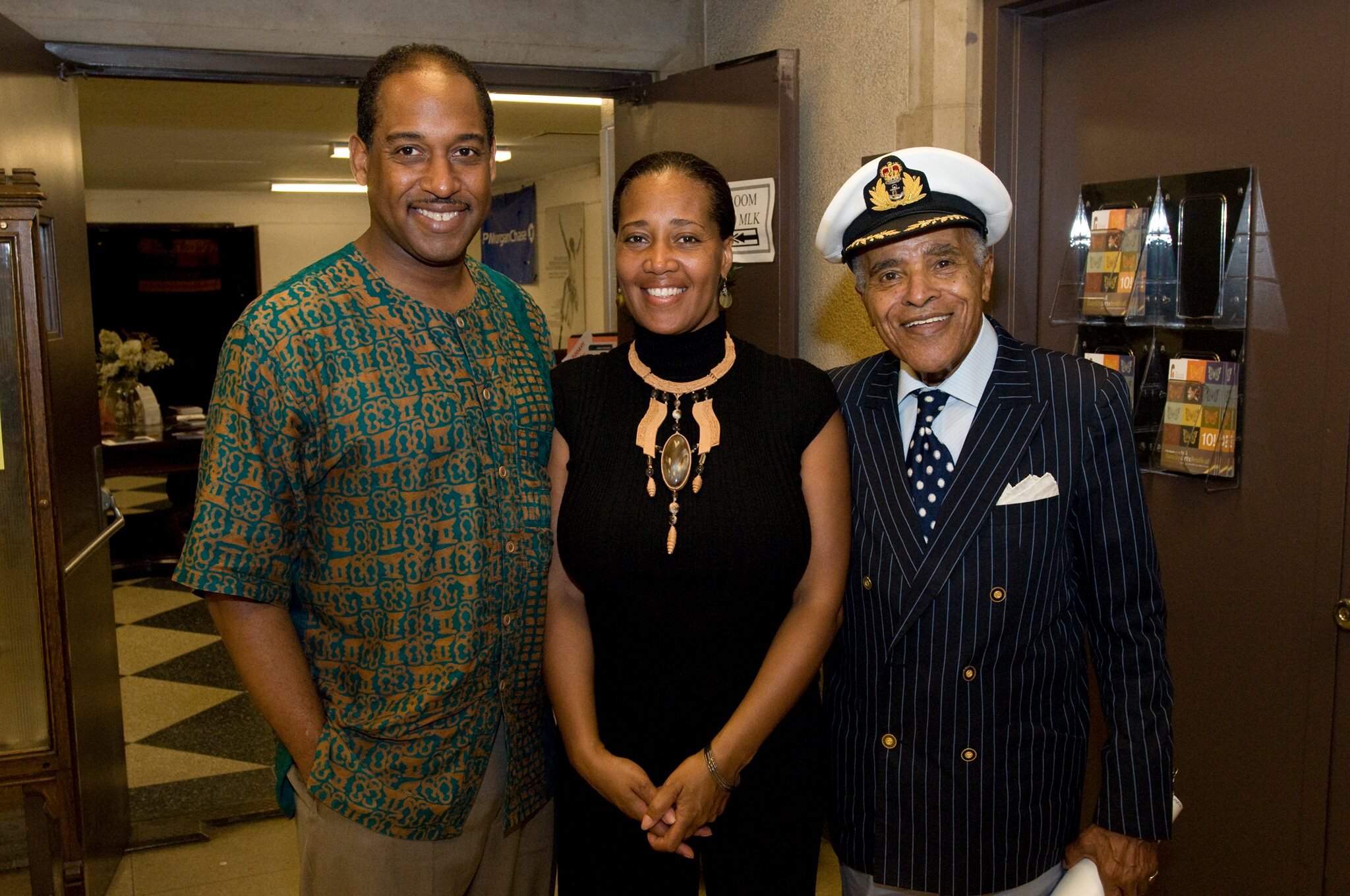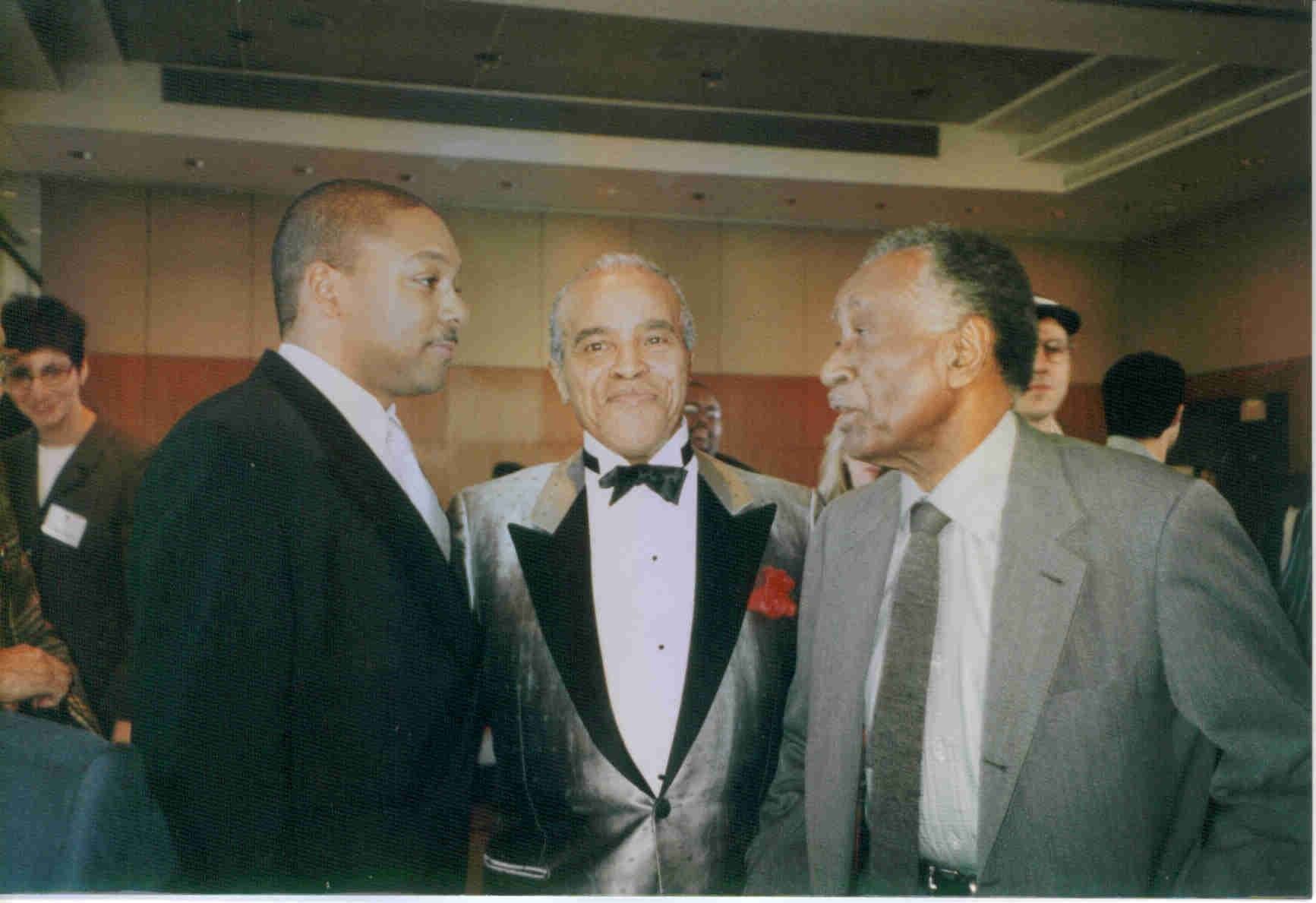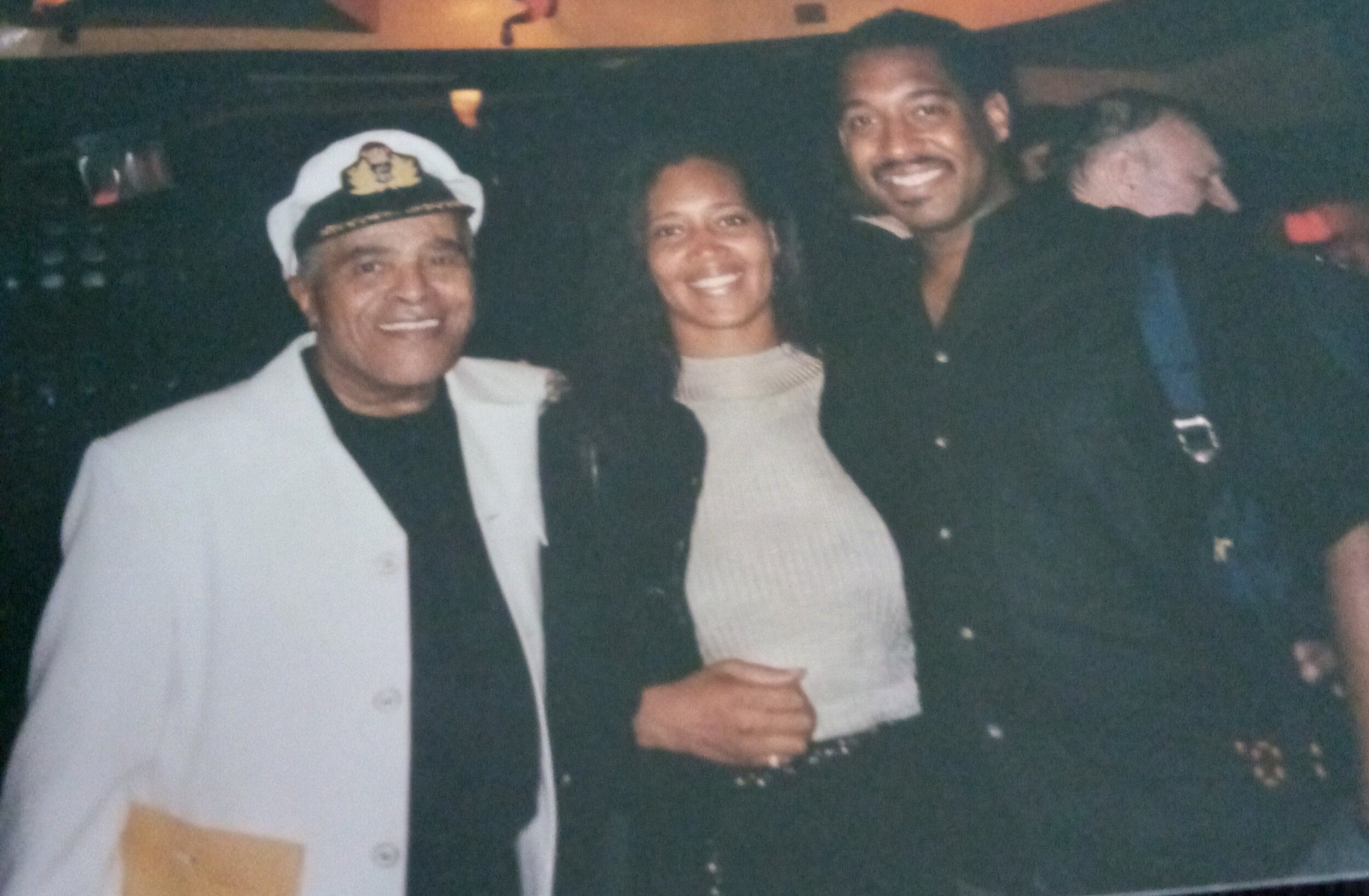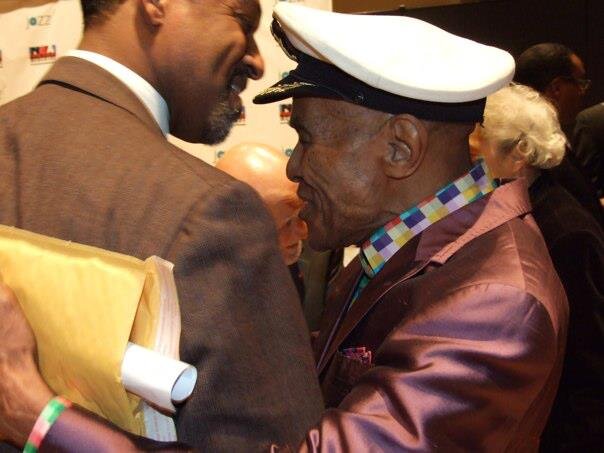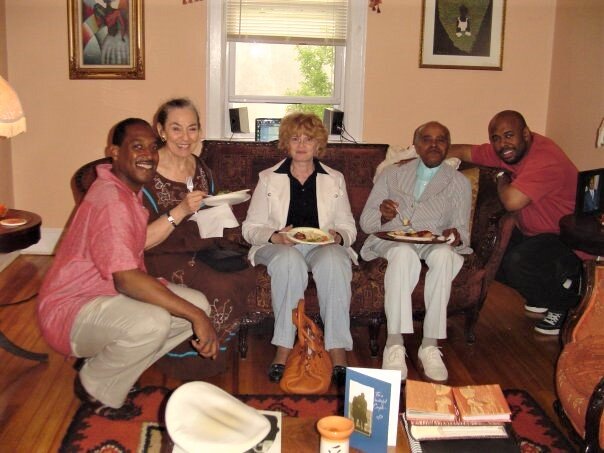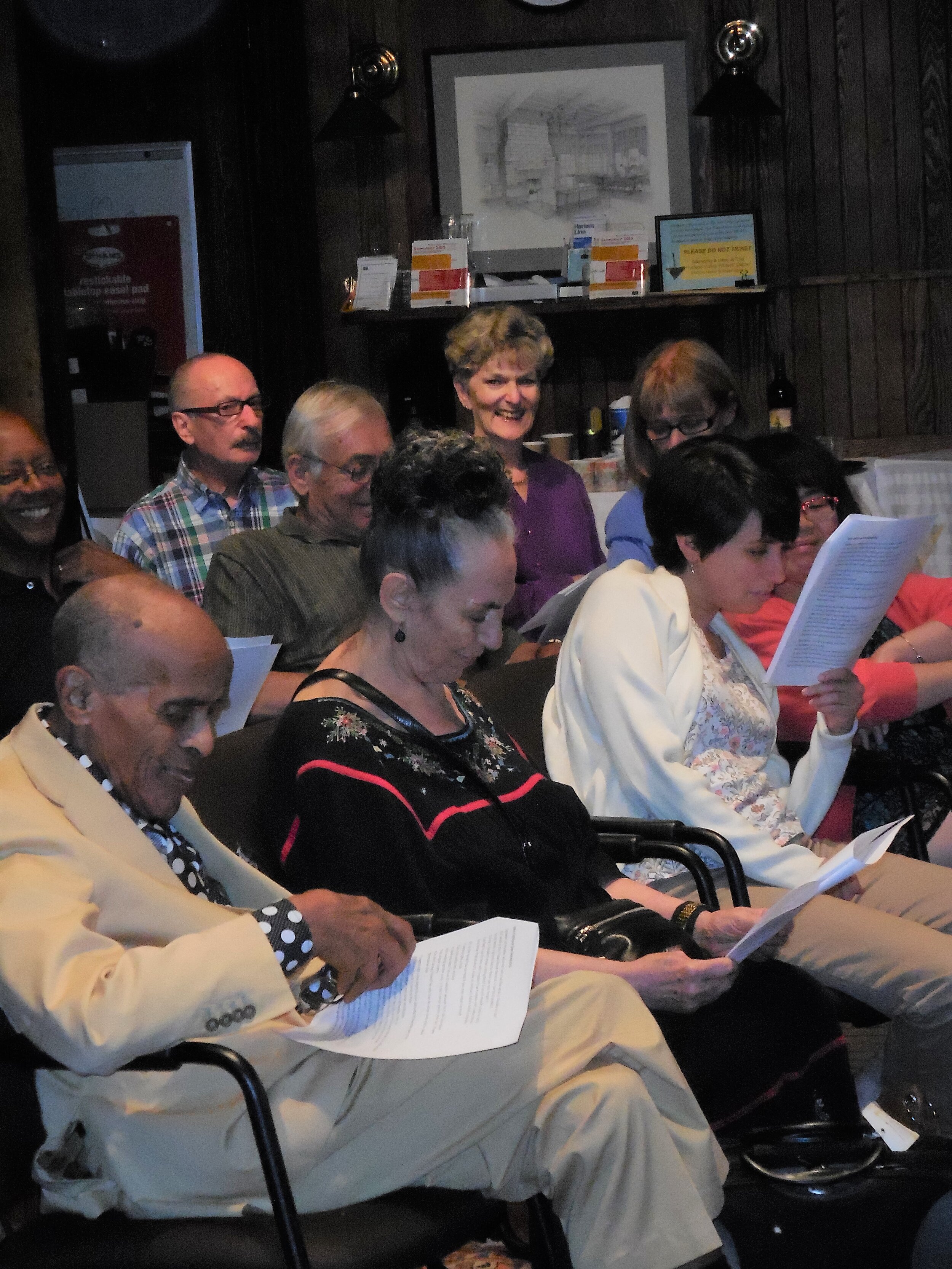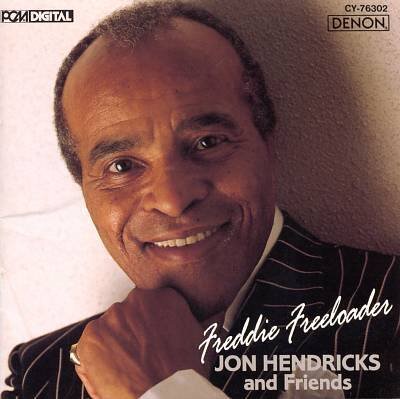Clifford Brown’s “Joy Spring”: Jon Hendricks’ Vocalese Genius
In the last two posts, “Beyonce and the Power of Myth” and “Hip Hop Freestylin’: Shades of Jazz,” I’ve mentioned jazz vocalese, the art of lyricizing melodies and improvisations into story form. Both of those posts played with metaphor, myth, and culture, with strong poetic content. This post follows suit.
The greatest practitioner of jazz vocalese was the late, great Jon Hendricks. In my estimation, aside from “Freddie Freeloader,” his greatest vocalese composition is “Sing Joy Spring” from the Grammy Award winning album by Manhattan Transfer, aptly titled Vocalese.
The Honor of Knowing Jon and Judith Hendricks
As a jazz journalist, the honor of meeting, interviewing, and writing about jazz legends is its own reward.
But of all the masters I’ve been fortunate to meet, Jon and Judith Hendricks were two of the most gracious and accommodating. In the late 1990s, Mr. Hendricks accepted my invitation to attend a presentation on his work for Columbia University’s Jazz Study Group, which became the Center for Jazz Studies. When Jewel and I held a housewarming party in the summer of 2009 in New Rochelle, NY, Judith and Jon graced us with their presence (see photo above with me on the left and Christian McBride on the right). And when Jewel served as the Executive Director of the Hudson Valley Writer’s Center, I presented again on his vocalese genius.
The photo above, with Mr. and Mrs. Hendricks staring down at the lyrics I’m about to share with you, is from that event. It was the last time Jewel and I saw the two together. When Judith passed away in 2015, they had been married for 54 years.
Backstory
Jon Hendricks sang on the radio with Art Tatum, the greatest of all jazz pianists, in their hometown, Toledo, Ohio. He was encouraged to come to New York by none other than Charlie “Bird” Parker. He was handpicked by Thelonious Monk to compose lyrics to his sui generis compositions; Monk reportedly said to Hendricks: “You’re the only muthafucka I want to write lyrics to my songs!”
He was co-founder of the path-breaking vocal group, Lambert, Hendricks and Ross, which set the modern standard for group vocalizing in jazz, pioneering the use of overdubbing of voices to simulate the big band sounds of Count Basie and Duke Ellington, among other giants.
Al Jarreau once called him “pound for pound the best jazz singer on the planet.” In my estimation, he was the poet laureate of jazz in the 20th century. By his own estimation, he composed over 300 vocalese lyrics.
Once, at his family’s high-rise apartment in Battery Park City, overlooking the Hudson, he said unto me:
As a jazz musician, I would like to be remembered as a poet. That’s the highest level, because poetry is the highest use of the word. The language that one speaks attains its height in poetry; a person reads a great poem and his soul is ennobled. The Bible is poetry, great literature is poetry. A good lyricist is a poet. Johnny Mercer was a poet: ‘Footsteps that you hear down the hall, the laugh that floats, on a summer night, that you can never quite recall.’ That’s poetry. So if I can be remembered as a poet, I’ll be happy.
—Jon Hendricks
Vocalese Listening-Reading Method
I strongly urge you to use this approach to gain maximum insight and aesthetic pleasure from this experience:
Step One: Listen to the original masterpiece by the Clifford Brown-Max Roach Quintet.
Step Two: Read Mr. Hendricks’ vocalese lyrics below
Step Three: Listen to the Manhattan Transfer version of “Sing Joy Spring” while reading the lyrics
Step Four: Repeat steps 1-3.
Sing Joy Spring
(Music by Clifford Brown, performed by Manhattan Transfer, Lyrics by Jon Hendricks)
We sing a spring
(Sing joy spring)
A rare and most mysterious spring
(This most occult thing)
Is buried deep in the soul
(It's story never has been told)
The joy spring, the fountain of pleasure
Is deep inside you whether you're diggin' it or not
Once you're aware of this spring
You'll know that it's the greatest
Treasure you've got
And furthermore
The joy spring, the bounteous treasure
Cannot be bartered away and never
Can be sold
Nothing can take it from you
It's yours and yours alone to have
And to hold
And something more:
It never is lost to fire or theft
It's always around
When trouble is gone, the pleasure
Is left, I've always found
It's burglar-proof same as the treasure
Man lays up in heaven, worth a
Price no one can measure
that says a lot
So joy spring, this fountain of pleasure
That's deep inside you, let me inform
You in all truth *(to Coda second time)
Ponce de Leon sought this
When he was searchin' for the fountain of youth
Ponce de Leon laughed so much he
Never did find the magic fountain
But many people with a well-adjusted
Spirit they could hear it when y'told
'em it was there, tellin' them was
Like tellin' it on the mountain
It's quite a lift havin' the gift of
laughter, I'm a man who knows in a
minute—I can tell y'just exactly how the story goes
It involves a firm conviction in another
previous life givin' your mind a chance to fly
Fly aroun' the universe investigatin' other
galaxies n' certain other subtle
types o'life tryin' t'dig it gettin'
pretty well-acquainted with a lot of
other strife; an' pretty much acquirin'
yourself plenty of education
pretty soon here comes earth birth
'n then y'ready t'put it all t'work
but soon as you're finished bein' born
you start forgettin' what you knew
'Cause you're another kinda you - a
reincarnation manifestation
of spirit in sensation
Y'really got that right
The average person isn't bright
not so bright that they recall the fatal fall
down here t' this earth
their minds disguise their death to spirit
life and call it birth
that's their reason for forgetting and they
find it very upsetting when reminded
tell 'em they've lived before
They'll show y' the nearest open door
Gotta have feelin' while dealin' with
walkers in their sleep
they can't imagine somethin' as deep
Here they come - here they come - there they are
Unimaginative and ignorant of falling from a star
Here they come - there they are - there they go
Life is over in a minute an' they never dug
it in it or enjoy a minute of it
'cause they put too much above it
that was gross
somethin' that was worth a couple bucks
at mos'
So there is the reason that the maker of man
included there in his plan
A certain fountain deep within'
where there was laughter, youth 'n gold
for human beings t'have 'n hold
'n share the memory of where we've all been
Brothers called Grimm knew chances were slim'
Anybody would dig that the human soul
was Snow White
and the Seven Dwarfs were seven tempers
in man
whose digging out the gold completes
the plan
An Bacon was hip that Shakespeare
couldn't read
and so he gave him all the rhymes
that have lasted through the years
and kept eternal truths alive through
several centuries
That's how we know them now
they lasted 'cause they're true
What was it from "MacBeth?"
"Life's but a walking shadow
a player poor
that struts and frets upon the stage
and's seen no more
A tale that truly has an idiotic ring
That's full of lotsa sound and fury
signifying nothing..."
That's right signifying nothing
I'll repeat it! Nothing
Don't forget it - Nothing
And that's the reason for that spring
of joy
That the Father put inside of every
single girl and boy
(Dizzy Gillespie solo)
Show time! Everyone on
let's hit the stage
It's show time everyone an' proceed
to act your age
Whatever you're frownin' at is funny
enough f'laughin'
so you're wastin' all your humor on a frown
While you're bringin' your spirit down
You gotta book yourself a comic in your act
without some laughter life's a maudlin
farce 'n that's a fact
Once you know about the spring you always can smile
It becomes your one expression
and you're always wearin' it like the
Buddhas do
Ponce de Leon sought this
When he was searchin'
for the fountain of youth
I say in truth he
sought a magical thing
For he was searchin'
for the joy spring
What Does Joy Spring Mean?
“To me, ‘Joy Spring’ meant two things,” Mr. Hendricks told me. “It could mean a spring from which instead of water, we ladled up joy for your spirit. Or we drank joy from the spring. Or we waded in the joy spring; we bathed in the joy spring. So I started to philosophize it. First, I had to define the text in the first part of the song. The first chorus had to be a definition of what this thing was. Then the solos had to be commentaries on that first chorus . . . different horns make different commentaries.
“That’s my philosophy too. That we are, each of us, a universe. And we’re moving through the world and there are people moving, contemporary to us, with us, others not moving in our direction, but it’s all happening at the same time. That joy spring is what sustains us all. That spring of sheer joy inside of us is what nurtures all of us: it cannot be bartered and cannot be sold.”


